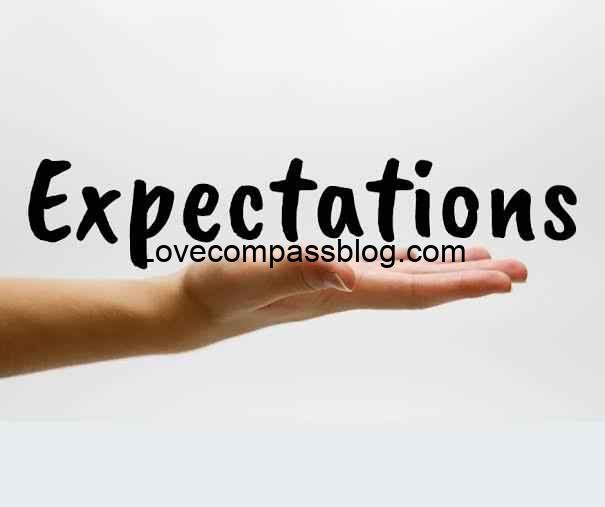How to Handle Relationship Pressure from Family or Society

Relationships, at their best, are a source of fulfillment and emotional support. However, external pressures, particularly from family or societal expectations, can create overwhelming stress that strains even the strongest bonds. When dealing with relationship pressure, it’s crucial to recognize the sources of this pressure, understand its impact on your emotional well-being, and apply effective strategies to manage it. This guide will explore various forms of external relationship pressure and how to navigate them for a healthier, more balanced relationship.
What Is Relationship Pressure?

Relationship pressure comes from external influences that impose stress or expectations on a relationship, often from family, society, or peer groups. This pressure can take many forms, including expectations to follow certain timelines (marriage, children) or to conform to cultural norms or values. It can lead to feelings of guilt, anxiety, or inadequacy, especially when one partner feels as though they are not meeting these external expectations.
Common Sources of Relationship Pressure
- Family interference in relationships: Family members may have strong opinions about your relationship, expecting you to adhere to their beliefs about when and how relationships should progress. This often includes opinions about your choice of partner, your relationship timeline, or decisions about marriage and children.
- Societal pressure on relationships: Society promotes an idealized vision of relationships, often leading individuals to feel pressured to meet certain benchmarks, such as getting engaged or married by a specific age. These societal standards are often unrealistic and can create unnecessary stress when your relationship doesn’t align with them.
- Peer pressure: Friends and acquaintances may offer unsolicited advice or impose their own beliefs about how a relationship should work. Whether it’s subtle suggestions or overt remarks, this type of pressure can influence how you feel about your relationship’s progress or status.
Signs You’re Experiencing Relationship Pressure
Pressure manifests in different ways, and it’s important to recognize the signs before it erodes the connection you share with your partner. Some key indicators include:
- Feeling the need to constantly justify your relationship decisions to others
- A growing sense of guilt for not meeting family or societal expectations
- Frequently questioning the authenticity of your relationship due to outside opinions
- Experiencing anxiety about your relationship’s future based on other people’s timelines or ideals
Family Expectations and Their Impact on Relationships

Family is often the most intimate source of relationship pressure. Their influence stems from a deep sense of care and desire for what they believe is best for you. However, when family members impose their expectations, they can inadvertently strain your relationship.
The Role of Family in Relationships
The family’s role in relationships varies across cultures and individual circumstances. In some families, parents or siblings may have strong opinions about who you should date or marry. This can lead to family interference in relationship dynamics, especially if they disapprove of your partner or don’t agree with your personal choices.
While some family members may be well-meaning, their interference can create tension between you and your partner. For instance, if they pressure you into marriage or children before you’re ready, this can lead to significant relationship stress. Similarly, if they disapprove of your partner, it can create a rift not only between you and your partner but also between you and your family.
Balancing Family Influence with Personal Needs
Balancing family expectations with your relationship needs can be difficult, but it is essential for your relationship’s long-term health. Healthy boundaries are necessary to ensure that your relationship remains based on the values and desires of you and your partner, not external forces. Some strategies include:
- Clear communication: Have open conversations with your family about their concerns and your relationship goals. Explain that while you appreciate their input, the ultimate decisions should be made between you and your partner.
- Setting boundaries: Create firm yet respectful boundaries regarding family involvement in your relationship. Whether it’s declining to discuss certain topics or limiting how much influence they have on major decisions, boundaries protect the integrity of your relationship.
By maintaining a united front with your partner, you can prevent family disapproval stress from eroding your relationship.
Societal Pressure on Relationships

In addition to family, societal expectations can heavily influence how individuals perceive their relationships. From social media portrayals to cultural norms, the pressure to fit into predefined molds can be overwhelming.
Societal Norms and Relationship Expectations
Society often dictates what a “successful” relationship looks like. Societal relationship expectations include getting engaged or married by a certain age, following traditional gender roles, or having children according to a specific timeline. These expectations are often reinforced through media, social interactions, and cultural traditions.
- Media portrayals of relationships: Television, movies, and social media often promote idealized versions of relationships. These portrayals create unrealistic standards, making individuals feel as though their own relationship is lacking or failing because it doesn’t align with what is commonly depicted.
- Cultural norms: Cultural traditions can further intensify the pressure. In many cultures, marriage and children are seen as critical milestones that define a successful relationship, even if those involved in the relationship aren’t ready for such commitments.
How to Cope with Societal Expectations
The best way to handle societal pressure is to shift your focus inward and away from external opinions. Remember that your relationship is unique, and the only opinions that truly matter are yours and your partner’s. Some key strategies include:
- Rejecting external timelines: Society doesn’t get to decide when you should get married or have children. Instead, focus on what feels right for you and your partner, and make decisions based on your mutual readiness.
- Limiting social media comparisons: Social media often paints a picture-perfect image of relationships, but these are rarely reflective of reality. Limiting comparisons to these curated portrayals can help reduce the pressure to conform to societal standards.
By refocusing on what works for your relationship, you can alleviate the burden of trying to live up to societal expectations.
Handling Pressure from Your Partner

Sometimes, pressure within the relationship itself can be just as damaging as external influences. Partner expectations can lead to feelings of guilt or inadequacy, especially if one person feels overwhelmed by their partner’s desires.
Recognizing Pressure from a Partner
Pressure from a partner can manifest in subtle ways, and it’s important to identify when this pressure is causing strain. Signs of being pressured by a partner include:
- Feeling like you must meet their timelines or expectations to avoid conflict
- Sacrificing your own desires or values to maintain peace
- Constantly feeling inadequate or that you’re failing to meet their standards
In some cases, the pressure might be unintentional, but that doesn’t make it any less impactful.
Reducing Pressure Within the Relationship
To avoid relationship strain, it’s crucial to communicate openly with your partner about expectations. Mutual respect and understanding are key to ensuring that both partners feel heard and supported. Some helpful approaches include:
- Discussing expectations early on: In the early stages of a relationship, it’s important to talk about long-term goals and how you each envision the relationship progressing. This can help prevent pressure in dating as you get to know one another.
- Avoiding rushed decisions: Pressuring your partner into major commitments, such as moving in together or getting married, can lead to resentment. Instead, allow your relationship to progress naturally and without unnecessary haste.
Open and honest communication will help alleviate unnecessary stress and ensure that both partners are on the same page.
Resetting Your Relationship: The 7-Day Relationship Reset

Sometimes, relationship pressure has built up over time and requires a reset. The 7-Day Relationship Reset offers couples a structured way to reconnect and realign their relationship goals.
What Is the 7-Day Relationship Reset?
The 7-Day Relationship Reset is a period where couples commit to reevaluating their relationship, addressing underlying issues, and rebuilding emotional connections. During this reset, couples are encouraged to:
- Revisit their original relationship goals
- Identify areas where external pressures (family, societal, or partner) have caused strain
- Create action plans for improving communication and reducing stress moving forward
This period offers a valuable opportunity for reflection and reconnection, allowing couples to work through issues in a focused and meaningful way.
Rebuilding After Pressure Has Damaged the Relationship
If external pressures have already caused significant damage to your relationship, rebuilding trust and intimacy will take time and effort. Some key steps include:
- Acknowledging the role of external forces: It’s important to have open conversations about how family pressure, societal expectations, or partner demands have contributed to the strain. By acknowledging these issues, you can work toward resolving them together.
- Prioritizing your relationship: Reaffirm your commitment to one another and make your relationship a priority. This means putting your own and your partner’s needs first, above external influences.
With time, couples can rebuild stronger, more resilient relationships that are better equipped to handle external pressure.
Conclusion
Dealing with relationship pressure from family or society can feel overwhelming, but it’s manageable with the right approach. The key lies in identifying the sources of pressure, establishing clear boundaries, and maintaining open communication with your partner. By standing united and resisting external influence, you can create a relationship built on mutual respect and shared goals.
Now that you know how to handle these external pressures, take steps to protect your relationship from the demands of others. Focus on your unique bond, set boundaries with family, and reject societal expectations that don’t align with your relationship. Ultimately, the strength of your relationship comes from within, and the more you invest in each other, the more resilient you’ll be against external stressors.




